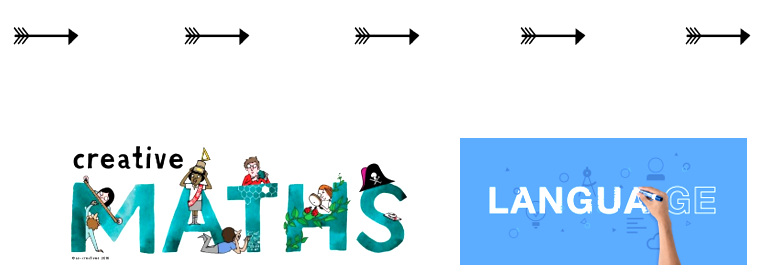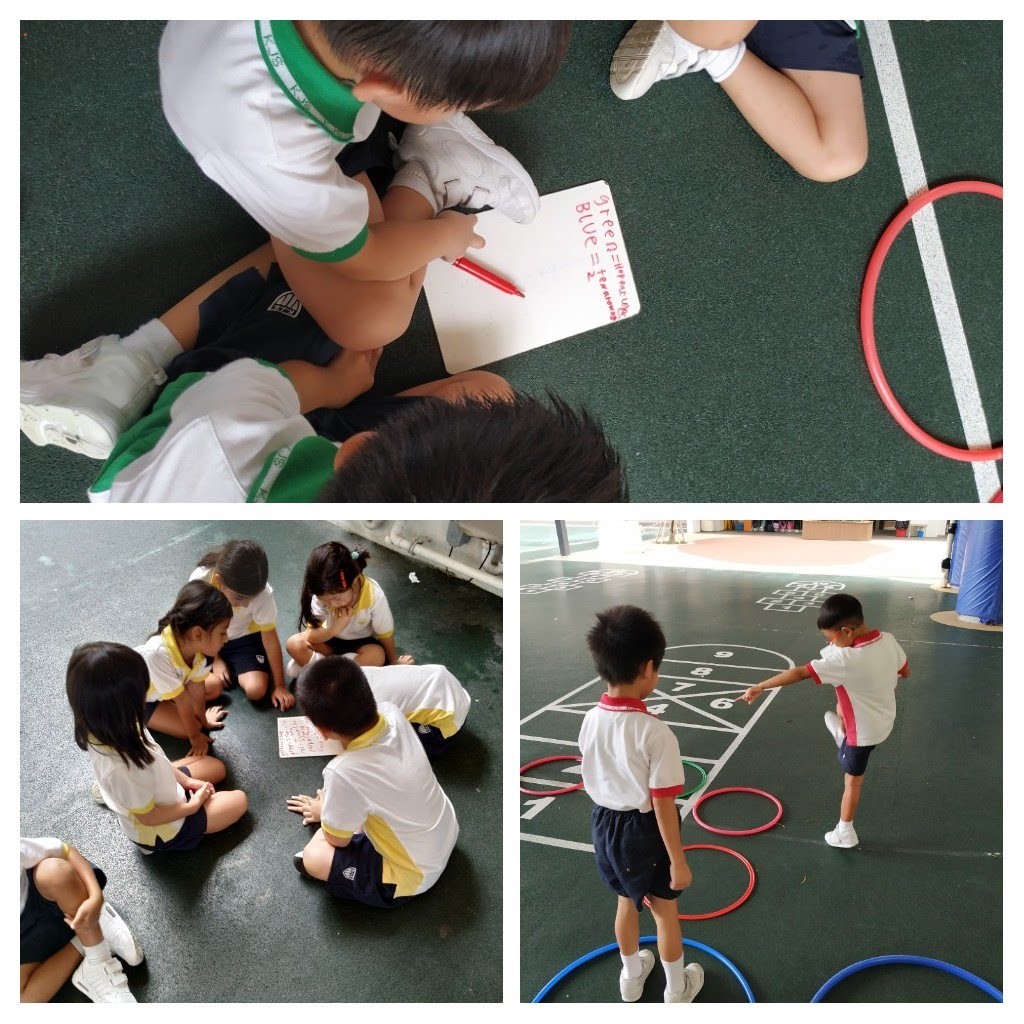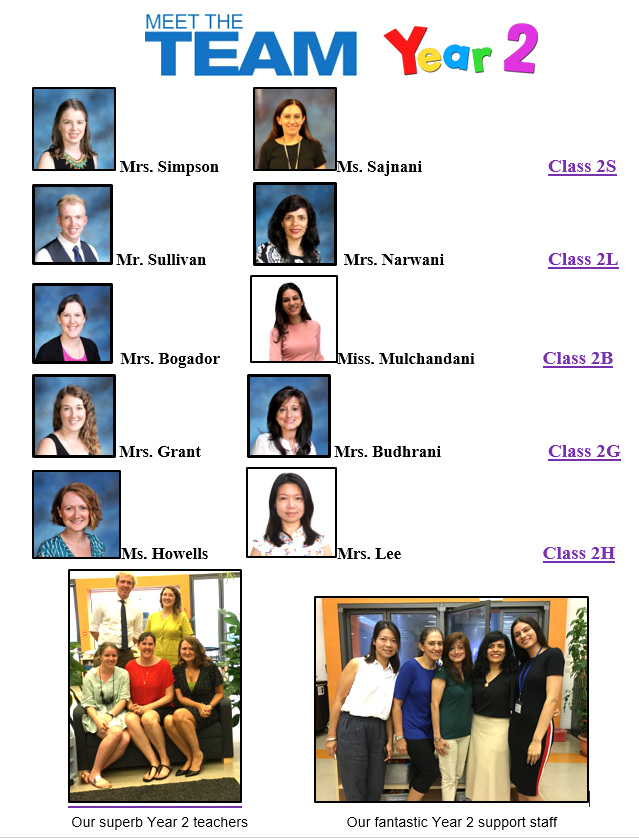Yr2 Curriculum Update – 30/08/19
Working together to achieve success for every child


Greetings! – It’s our 1st edition!
We write a regular newsletter keeping you up-to-date and informed about your child’s learning. This will provide you with a good understanding of happenings in Year 2 and how you can support these learning experiences.
Let’s Inquire – Who We Are
2019/20 is all about wellbeing and sustainability at KJS. In fact, our first unit of inquiry is a school wide focus with all students inquiring into the central idea, “Values and beliefs define individuals and communities” This week, Year 2 students have continued to question, explore and reflect upon the different types of communities they are part of, identifying what makes these successful. Central to this inquiry has been defining the meaning of a community, their purpose and discussing the importance of respect for self, others and the environment. Collaborative play-based activities have supported student wellbeing, self-management and social skill development, and enabled them to make connections to other aspects of their learning.
‘Success for Every Child – AAROW
You will know ‘Success’ at KJS has a specific definition. It is:
Achievement: students making significant progress with their learning, having a growth mindset, persevering and learning from mistakes.
Agency: students progressively taking control of their learning and knowing what they are learning, how to be successful and reflecting on their learning.
Respect: students being respectful to self, others and the environment.
Opportunity: students being given, and taking advantage of the opportunity to learn in different ways with different people in a range of places developing their critical, creative and collaborative skills
Wellbeing: students developing wellbeing of mind, body, spirit, relationship and having a balanced life. These then are the AAROWs of Success at KJS.

2019/20 is about open, visual, creative mathematics at KJS. In fact, our whole-school focus in recent weeks has been to enrich student learning by inviting them into this exciting world of problem-solving. A diverse range of learning activities, ranging from shape and space to sorting and counting, have increased students mathematical understanding, confidence, enjoyment, problem-solving skills, and promoted creative and imaginative approaches to Maths. Meanwhile in Language, students are starting to write informally about their own ideas, experiences and feelings connected to communities, using simple repetitive sentence structures (e.g. I like, I can, etc) and topic-specific vocabulary to create meaning. Parallel to this, digital literacy (e.g. IPADs & interactive whiteboards) continues to support the development of students’ phonological awareness and reading skills daily, through rhyme and song.
Let’s Inquire – How We Organise Ourselves & How The World Works
Next week, the students will start their learning journeys, inquiring into the central idea, ‘People design shared spaces and systems to strengthen communities.’
Lines of Inquiry
- The design process and how it works
- How shared spaces and systems connect us
- Why shared spaces and systems have been designed
Transdisciplinary Learning – It’s all connected!
Through these parallel units, students will develop as inquirers as they use their critical and creative thinking skills to examine and analyse systems around them; research answers and take responsible action on complex problems, growing in curiosity as they learn about systems around KJS. Through the concept of connection, students will be encouraged to explore the relationships and interconnectedness of shared spaces, human-made-systems and communities. Students will therefore develop the research skill of planning to organise a course of action, carry out effectively and reflect upon the main steps of the design process (i.e. how it works and why shared spaces and systems have been designed).

You may wish to support your child at home in the following ways:
Developing key vocabulary used in this unit will include: parts, community, people, needs, system, design, maker, shared space, connection, environment, interaction, expensive, cheap, fast, comfortable, convenient, reflective, thinking, cooperate, services, research grocery, police department, octopus system, classroom, organisation, cooperation, inquirer, thinker, analyse, evaluate, Please consider using your Mother Tongue to develop your child’s understanding of these words.
Conceptual Questions: This unit will be addressed through the lens of function, causation and connection. Over the next few weeks, try to ask your child lots of questions to develop their understanding of how things work (‘What are the different parts of that system?’ ‘What happens if one of the parts stops working?’) and to develop their capacity to rationalise why things are as they are (‘Why do you think this has happened?’’Why was that system created?’), and to explore the relationship between objects, people, places and events (‘How are these things connected?’ ‘Is that system connected to any other system?’’What part do I play in the system?’). These questions asked in any context, will support the work we do in school.
Fun things to do together:
- Take a walk around a district of Hong Kong. Observe and discuss the different shared spaces (e.g. parks, etc) and their systems. Discuss their purpose, design and how they support and strengthen communities.
- Take photographs of these different shared areas (e.g. parks, etc) and systems in Hong Kong or find pictures of different systems in different countries to bring into school. Collect tickets, maps and timetables and look at them together.
- Design a new shared space at home or a possible transport system for the future. Discuss how these designs can be used to positively impact community.
- Create maps of towns and the systems within them. Look at symbols used on signs and guess what they mean. Discuss which systems are more important and why.
- Make a list of the different shared spaces and systems you use each day or week in Hong Kong.
Action: This a key element of the Primary Years Programme. We are always looking to see how children take their learning and apply it independently. This can take many forms – from a discussion about the Unit of Inquiry at home initiated by your child, role-play or even a request to bring a book or artifact in to school because it relates to the work we have been doing in school. Now that you know what the unit is all about please keep your eyes open for evidence of action and let us know! Any action that you tell us about will be kept as part of your child’s records.
Let’s Inquire – P.E.
Year 2 students have been learning about their responsibilities in PE. Through a variety of fun challenges and activities they have been learning the importance of acting with respect for themselves by valuing our time to get physically active, for others through sharing space and equipment and for the environment by taking care of our equipment and learning spaces. In this early stage in the term it is important to revisit some of the expectations of PE. The students are learning that their choices have an effect on others. Through games and group activity they are able to help each other make positive choices to make PE lessons great fun for everyone.



Monday 2nd September
‘You Tell Us Meetings’ (no school for students)
Thursday 5th September
PTA AGM and Mid Autumn Festival Evening
Thursday 12th September
Staff Continuous Professional Development Day (no school for students)
Monday 30th September
Staff Continuous Professional Development Day (no school for students)

We hope that the pictures we add to our curriculum update each week will help you to make connections to the information shared above and to give you an insight into our week in Year 2

Collaborative play-based activities have supported student wellbeing, self-management and social skill development, and enabled them to make connections to other aspects of their learning.
Please remember if you have questions or concerns, contact your child’s teacher. We welcome feedback and look forward to working with you to achieve success for every child.
Kindest regards,
The Year 2 Team


